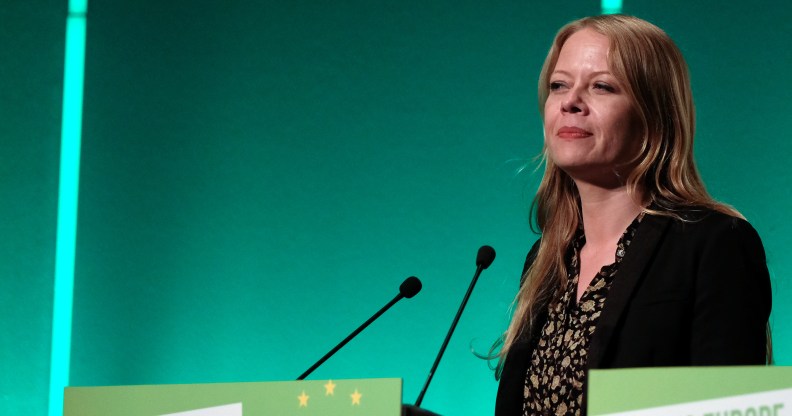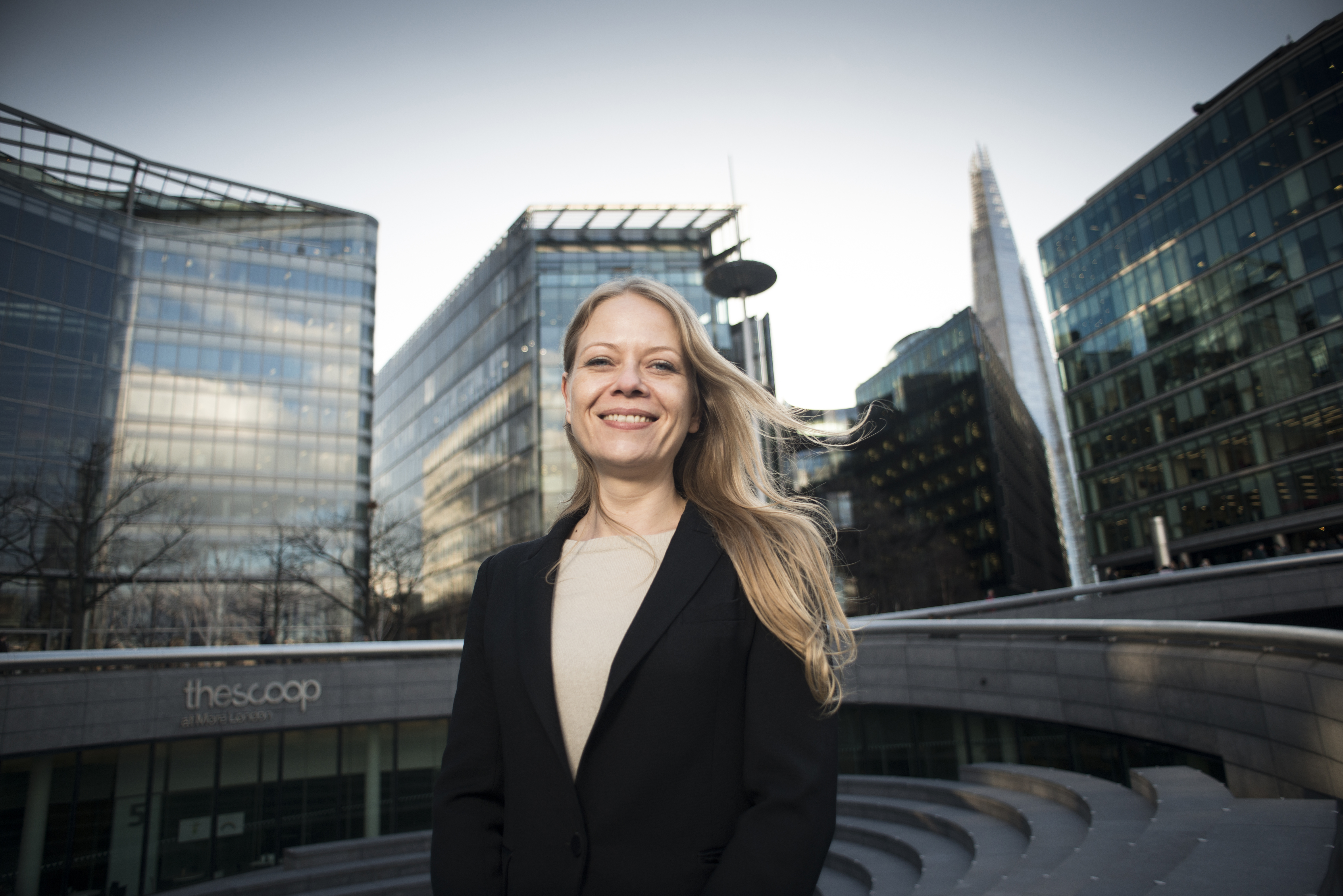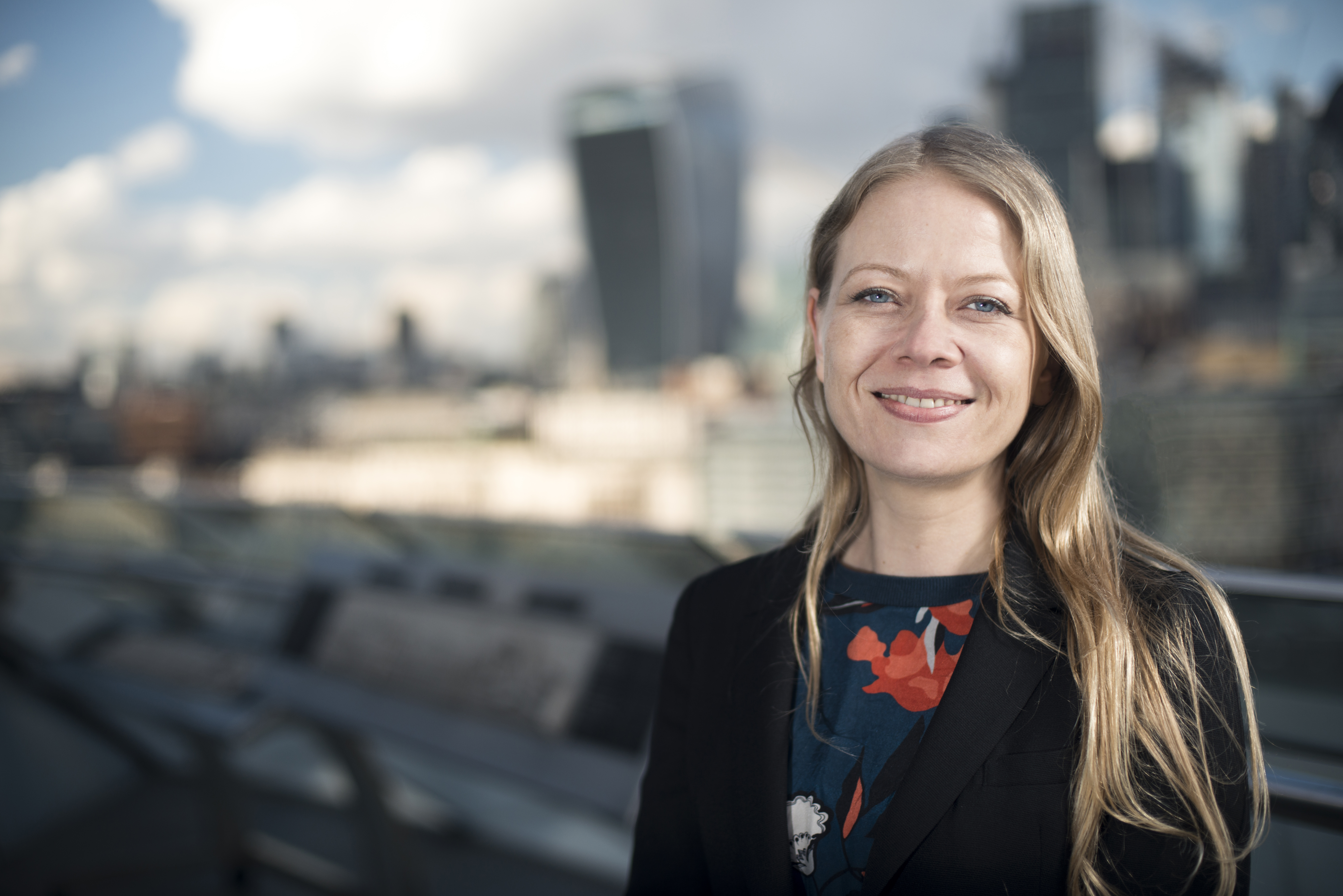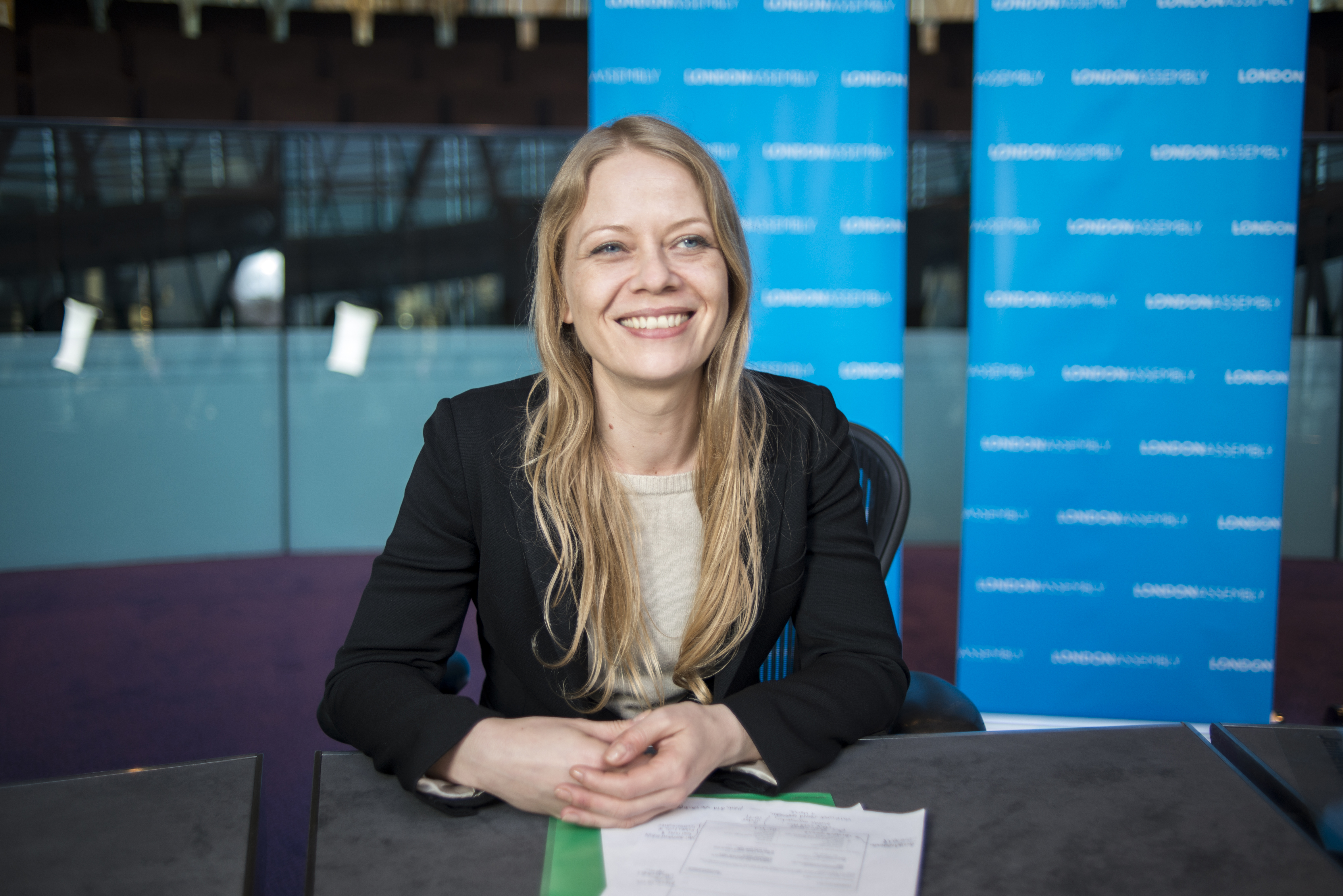Green Party leader Sian Berry says Boris Johnson’s use of ‘homophobic slurs’ should see him ‘struck out of politics forever’

Sian Berry at the 2019 Green Party Spring conference in Scarborough, England. (Ian Forsyth/Getty)
In a Q&A with PinkNews Sian Berry has fiercely condemned Boris Johnson, declaring that his use of “casual racist, sexist, homophobic slurs” makes him unfit to lead the country.
The Green Party leader also denounced the Home Office’s treatment of LGBT+ asylum seekers as “humiliating, traumatic and cruel” and pledged to end all deportation flights to countries of persecution and violence.
Touching on the subject of transphobia within her own party, she made clear her support for trans rights, declaring once and for all that trans women are women who shouldn’t be excluded from any single-sex spaces.
PinkNews: Your manifesto includes several extensive pledges for LGBT+ reforms. What makes this a priority for the Green Party more than any other party?
Sian Berry: That’s a really interesting question. I think it goes to the heart of what the Green Party is about. We listen and include people who are excluded and always challenge power structures when working to change society.
We have an incredibly active community of LGBTIQA+ Greens who are developing policy and representing us in their local communities. I think the presence of so many LGBTIQA+ reforms in our manifesto is a real testament to the power of including and involving all our members in the political process.
When did LGBT+ rights first become an integral part of your own political agenda?
The leadership of Darren Johnson, our first candidate for Mayor in 2000 and the first gay man to stand for the role, was a big influence on my early politics and political education. The way that LGBT rights advanced so far in the 2000s thanks to people like Darren pulling issues like equal marriage into the mainstream, made me slightly complacent I think. I was not expecting the current backlash against trans people and I feel like now we are playing catch up with an agenda that has pulled us backwards.

Who is your own personal gay icon and, equally, who is your trans hero?
My first trans hero was fictional – Mrs Madrigal from the Tales of the City books, which I basically inhaled whole as soon as I discovered them. The new series on her early life and the role of trans people in the civil rights movement was sad but inspiring to see too.
I really admire a longtime activist Charlie Kiss. His book A New Man is about his journey from Greenham Common to being a parliamentary candidate.
Do you think anyone who uses a homophobic slur like ‘tank-topped bum boys‘ is fit to lead the United Kingdom?
Not in a million years. There are hundreds of reasons why Boris Johnson isn’t fit to lead the country, but the casual racist, sexist, homophobic slurs dished out in his newspaper columns should have struck him out of politics forever. The fact that he was ever London mayor, let alone the prime minister, is alarming to me and shows how far our country still has to go in the fight against prejudice.
In your manifesto you’ve pledged to introduce an ‘intersectional’ approach to hate crime. What does this actually mean and how will it be different from what we’ve seen so far?
The UK’s Equality Act and hate crime legislation were groundbreaking laws at the time, but haven’t been updated much since. These laws take quite a piecemeal approach to equality and discrimination, focusing on individual characteristics without much recognition of how different factors of oppression can coincide. An intersectional approach to hate crime and equality would be much more understanding of individual circumstances and the compounding of abuse when these factors overlap.
So many of our government departments and processes, from benefits to asylum, are focused on disqualifying people from receiving public help.
Do you believe the Home Office’s treatment of LGBT+ asylum seekers is appropriate? If no, why haven’t you included any reference to LGBT+ asylum or global LGBT+ rights in your manifesto?
The Home Office’s treatment of LGBTIQA+ asylum seekers has often been humiliating, traumatic and cruel. So many of these cases have come to light and every single one is one too many. So many of our government departments and processes, from benefits to asylum, are focused on disqualifying people from receiving public help, and this leads to people falling through cracks due to personal and institutional prejudice as well as outright discriminatory policies.
The Green Party’s Universal Basic Income scheme is one way we would seek to remove chances for prejudice to manifest itself in policy, and our manifesto pledge for public support for all asylum seekers who need it includes LGBTIQA+ asylum seekers. More importantly, our pledge to end all deportation flights will mean no more tragedies of people being sent to horrific persecution and violence.
Recent research suggests that LGB people are roughly twice as likely to engage in environmental activism as straight people. Why do you think this is?
That’s such a fascinating statistic! I’m sure whole PhDs could be written on the question. We always say that social justice and environmental justice cannot be separated, so I think possibly people affected by social injustice can be more open to seeing other fundamental flaws and the need for system change more widely.
You’ve pledged to fully fund LGBT-inclusive education and end the opt-out of classes. How would you ensure this applies to religious schools, given that many religious parents have simply pulled their kids out of classes?
We think an inclusive education without schools that separate children by gender, religion, wealth or ability is the best way to build a strong society. We would make sure all schools, including religious schools, gave appropriate lessons in PSHE so that every child grows up knowing and understanding all the different kinds of couples and families in the world around them.
When did you first witness transphobia and how did it make you feel?
I grew up seeing trans people treated by Sunday tabloids as scandalous curiosities, and as the subject of jokes on TV. Even before I knew anyone who was trans it was obvious this was cruel and abusive.

Have you noticed any incidents of transphobia in your own party, and if so, how did you tackle it?
At our conference last year there were transphobic protests around the entrance to the venue and it was incredibly hard to protect our trans and non-binary members from having to experience this. Afterwards, Jonathan, Amelia and I wrote as the leadership team to all members apologising for not providing a safer space and reminding members of our code of conduct guidance on respecting each others’ identities and feelings.
A reader has written to us expressing their concerns about treatment of transgender people in the NHS:
“With NHS transgender service waiting lists now exceeding five years to treatment, regular reports of trans service doctors being deeply rude and offensive, refusing treatment when someone has other mental health issues (even when gender dysphoria is the root cause), and the service using four times more appointments than private services – the situation is distinctly different to those issues with mental health services.”
Do you believe transphobia is embedded in the NHS? And if so, how will you ensure your plans for LGBT-specific healthcare are accessible and inclusive of the trans people who so desperately need it?
It’s incredibly concerning that those who are worst off in society face the most difficulties in accessing healthcare – from people who suffer several mental health problems for which there is inadequate care to trans people who have to suffer through incredibly long waiting periods for gender-affirming treatment. We shouldn’t accept that we have a health system that lets people fall through the cracks. Proper funding and reversing privatisation, as our manifesto and NHS Reinstatement Bill propose, will help – but we also need structures within the health service that make sure no-one fails to get the healthcare they need in a timely way.
Have you spoken personally with any trans people and listened to their concerns directly?
In my work as a London Assembly member I regularly receive and take up concerns about transphobia and lack of inclusivity in London’s services. Through this, working with trans people, I have helped get needless gender-based greetings removed from announcements on the tube, and forms filled in at the GLA now offer a range of gender neutral pronouns.
Why do you think the government has continually delayed the reforms to the Gender Recognition Act, and how will you avoid the same challenges?
The spousal veto, age limits and medical conditions in the Gender Recognition Act are out of date and long overdue to be updated. The mess of Brexit has to be held responsible for some of the delay but having more MPs who are committed to fixing this will also help.
Everything from healthcare to education to housing needs careful reform to eradicate the homophobia and transphobia embedded in these institutions, and to deliver real equality for all.
You’re planning to introduce a gender neutral ‘X’ marker on passports for trans and non-binary people. What is your response to those wanting to exclude trans and non-binary people from spaces under the guise of ‘single-sex exemptions’?
Trans women are women, and trans men are men, and non-binary people exist too, and no single-sex space should exclude them. Anyone trying to raise any concerns based on demonising or stereotyping trans people is just being prejudiced.
Have you ever let your hair down in a gay bar?
Almost all the gay housemates and relatives I have had are or were ridiculous cat people, as am I if I am honest. We have instead shared many memorable nights in over gin and TV!
What is your earliest or favourite memory of attending a Pride parade?
Pride in 2016 and the growth of trans awareness at the time felt like we were finally getting towards some kind of ‘final lap’ in terms of equality. That is why the resurgence in prejudice in today’s more fractured world against all minorities, especially LGBTIQA+ people is so upsetting and feels so wrong.

Madonna or Cher? And, more importantly, why?
Madonna. I wanted to literally be her when I was nine and, on behalf of everyone remotely involved in politics these past few years, I would definitely quote her and say: “We need a holiday!”
Why should a LGBT+ voter check the ballot box for the Green Party on 12 December?
For all the reasons above. And because unlike the party in Government we would never pay lip service to the LGBTQIA+ community in the UK whilst simultaneously deporting their queer and trans siblings to countries where they face a death sentence.
Everything from healthcare to education to housing needs careful reform to eradicate the homophobia and transphobia embedded in these institutions, and to deliver real equality for all.

